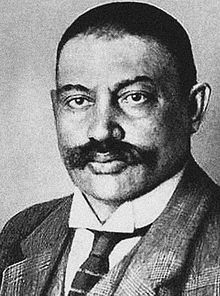Yevno Azef
Yevno Azef | |
|---|---|
 | |
| Born | 1869 |
| Died | 1918 |
This article includes a list of references, related reading, or external links, but its sources remain unclear because it lacks inline citations. (November 2009) |
Yevno Azef (Russian: Евгений Филиппович (Евно Фишелевич) Азеф, 1869-1918, also transliterated as Evno Azef), was a Russian socialist revolutionary who was also a double agent working both as an organizer of assassinations for the Socialist-Revolutionary Party (also known as SRs or Esers) and a police spy for the Okhrana, the Imperial secret police. He was an agent provocateur, carrying out acts of terrorism, which justified the police's arresting his accomplices.
Born as Evno Fishelevich Azef in Lyskovo (now Brest Voblast, Belarus) in 1869 to a poor Jewish family, he received only basic schooling. Later he worked as a journalist and a traveling salesman. He became a revolutionary as a young man. In 1892, when he was about to be arrested, he embezzled 800 rubles and fled to Germany, first to Karlsruhe and then Darmstadt. There he studied to become an electrical engineer. In those years Sergei Vasilyevich Zubatov of the Okhrana also recruited him as a police informer. [1]
In Germany he also joined a group of exiled members of the Russian Social Democratic Party and traveled all over Europe to meet other revolutionaries. In 1899 he returned to Russia and joined the Socialist-Revolutionary Party. He rose in status to become a member of the party's central committee. In 1903 he supplied the Okhrana with information which led to the arrest of Grigory Gershuni, head of the party's Combat Organization (its terrorist branch), enabling Azef to succeed him (with Boris Savinkov as his deputy). In that position he organized assassinations including those of Vyacheslav Plehve in 1904 and the Tsar's uncle Grand Duke Sergius Alexandrovich in 1905. By 1908, Azef was playing the double role of a revolutionary assassin and police spy who received 1000 rubles a month from the authorities. Sympathizers in the ranks of the police leaked information to the party, but it was not believed, being taken as malicious propaganda.[citation needed]
Eventually, a defector from the police convinced revolutionary Vladimir Burtsev to begin a long investigation. Burtsev finally spoke to Lopuhin, a former director of the police department, who verified that Azef had been working for them.
Burtsev exposed Azef in February 1909. A Court of Honor was held in Paris to verify Azef's guilt. The SRs decided to let Azef go home after he promised to provide convincing proof of his innocence the following day. Instead, Azef escaped retaliation and fled again to Germany. His wife, Ljuba Mankin, who had been unaware of his double-dealing, divorced him and moved to the United States.
In Germany, Azef lived with a singer and worked as a corset salesman and stock speculator. During the First World War, he was interned as an enemy alien. In prison he suffered from a kidney disease but was released in December 1917.
Yevno Azef died in Berlin in April 24, 1918. He was buried in an unmarked grave in Wilmersdorf cemetery.
Books
- Anna Geifman, Entangled in Terror: The Azef Affair and the Russian Revolution (Scholarly Resources 1999)
- Richard E. Rubenstein, Comrade Valentine: The True Story of Azef the Spy—The Most Dangerous Man in Russia at the Time of the Last Czars (Harcourt Brace and Company 1994)
- Rebecca West's The Birds Fall Down (1966) is a spy thriller based on the deeds of Azef.[2][3]
- Roman Gul's novel Azef (originally General B.O., 1929; later edition OCLC 3229274) hewed closely to the facts, according to Allen Dulles.[3]
- Joseph Conrad's novel Under Western Eyes (1911, OCLC 608066) used elements of the Azef story.[3]
See also
References
- ^ Richard Wilmer Rowan Secret Service, p. 361, Hawthorn Books Inc., 1967 LCCC #66-15344, ASIN B001NH45U0
- ^ First published in the UK by Macmillan in 1966, and published in the US by Viking Press also in 1966.
- ^ a b c Dulles, Allen, ed. (1969). Great Spy Stories from Fiction. Harper & Row. pp. 47–48. ISBN 9780004105918.
